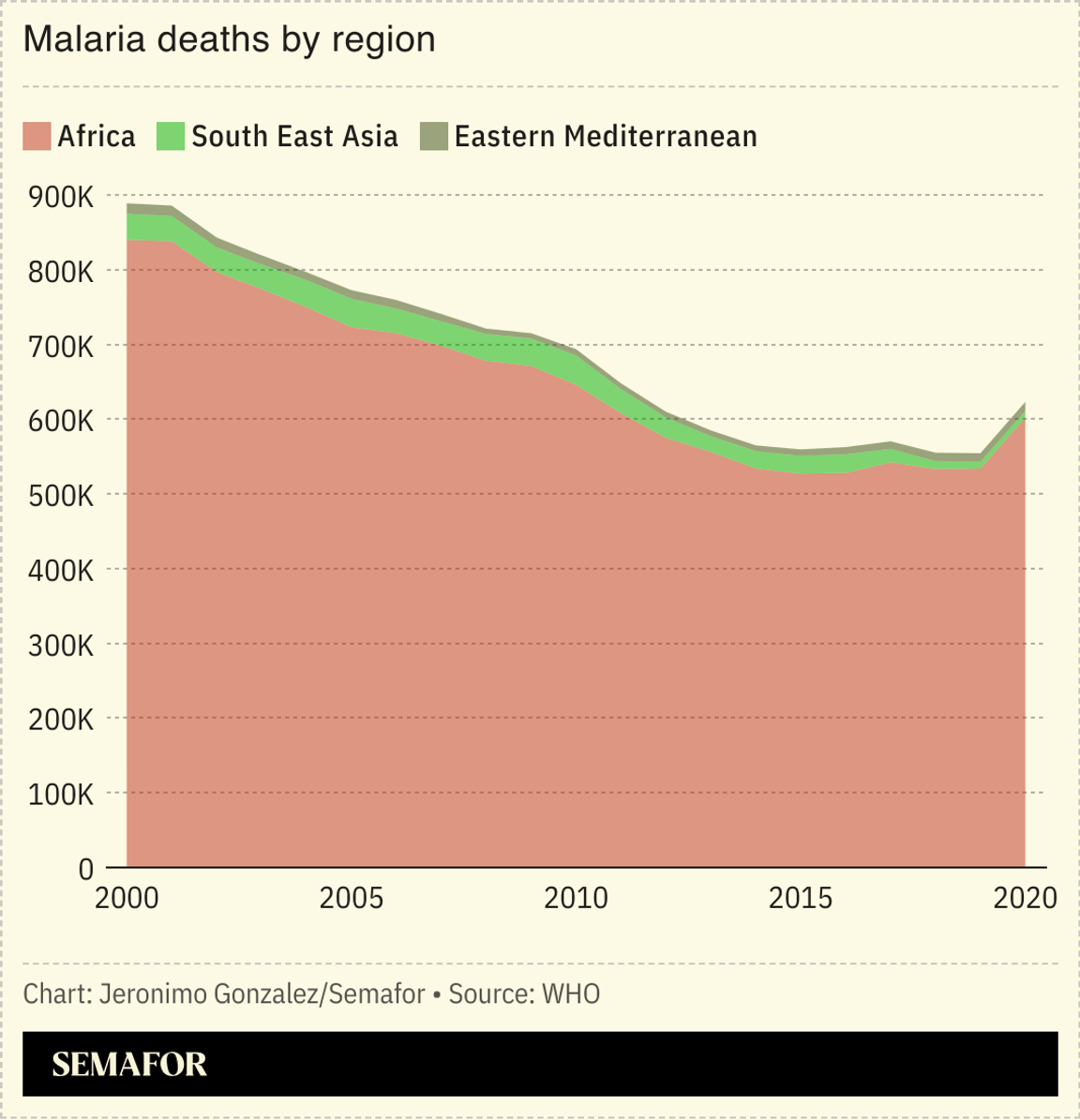 Cuts to US overseas aid could lead to an extra 13 million cases of malaria and 10,000 deaths in Africa this year, Lancet modeling suggested. President Donald Trump wants to halve the budget for a George W. Bush-era program that provides bed nets, insecticide, and drugs to prevent and treat the mosquito-borne disease. Malaria kills around 600,000 people, mostly African children, each year. It marks the latest White House assault on global health initiatives, despite their high cost-effectiveness: The President’s Emergency Plan for AIDS Relief is estimated to have saved 25 million lives in 22 years, for a few thousand dollars a life. But PEPFAR has also been cut, with scientists now estimating 600,000 extra AIDS deaths over 10 years. |